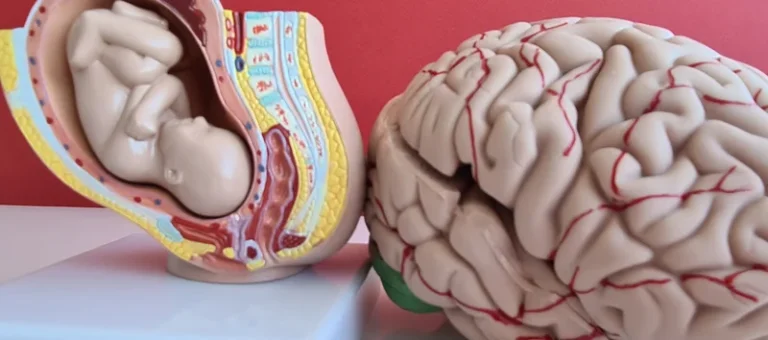
Over the past decade there have been tremendous advances in large scale SNP genotyping technologies and next generation sequencing and these technologies, including GWAS arrays and whole genome sequencing, are now widely available. Results of GWAS suggest that numerous common variants with very small effect and potentially rare variants with large effects are likely to encode proteins within, or regulate, numerous biological pathways. The current hope is that with very large sample sizes, GWAS will provide novel information about genetic underpinnings of alcoholism, including gene pathways that are altered in disease. Over the past few years numerous whole genome linkage studies have been performed in which the inheritance of phenotypes and genetic markers is followed in families [12,40]. A subsequent COGA scan found strong linkage of resting EEG beta power, an intermediate phenotype for alcoholism, to the same chromosome 4 region [43]. This finding led to the discovery of the association of GABRA2 with AUD, a robust, widely replicated finding that will be discussed below.
Is Alcohol Tolerance Genetic?

As whole exome and whole genome sequencingtechnologies come down in cost, they are being applied to identifying rarevariants. For studies of rare variants, families are quite valuable for sortingout true positives from the background of individual variations that we allharbor. It also is essential that the provider tailor treatment, which may include behavioral therapies and medications, to an individual’s specific combination of disorders and symptoms. It should also take into account the person’s age, the misused substance, and the specific mental disorder(s). Talk to your health care provider to determine what treatment may be best for you and give the treatment time to work. Updates about mental health topics, including NIMH news, upcoming events, mental disorders, funding opportunities, and research.
- To assess physiologic measurements, a five lead EKG was placed and EKG measurements were recorded (ADInstruments).
- It is hoped that such information will ultimately lead to improved prevention and treatment efforts.
- However the use of microarrays and advances in next-generation RNA-sequencing (RNA-Seq) [35] have conferred the ability to quantify mRNA transcripts in postmortem brain and analyze expression differences between alcoholics and controls within gene networks [36–39].
- COGA is an interdisciplinary project with the overarching goal of understanding the contributions and interactions of genetic, neurobiological and environmental factors towards risk and resilience over the developmental course of AUD, including relapse and recovery.
- Furthermore, aggregating across multiple SUDs suggests that problematic and disordered substance use has a unique genetic architecture that, while shared across SUDs, does not overlap fully with nondependent substance use per se16.
Transancestral GWAS of alcohol dependence reveals common genetic underpinnings with psychiatric disorders

Genome-wide data on 14,904 DSM-IV diagnosed AD individuals and 37,944 controls from 28 case/control and family-based studies were meta-analyzed for PGC’s AD GWAS. As yet, no GABRA2 functional variant has been detected to explain the yin yang haplotype (or tag SNP) associations with alcoholism-related phenotypes. HapMap data and other studies [52] reveal moderate long distance linkage disequilibrium across GABRA2 and the closely adjacent gene GABRG1 raising the possibility https://ecosoberhouse.com/ that the functional locus is in GABRG1. The results of several studies suggest that there are likely to be independent, complex contributions to alcoholism vulnerability from both linked genes [52–54]. Aldehyde dehydrogenase 2 (ALDH2) is critical for alcohol metabolism by converting acetaldehyde to acetic acid. In East Asian descendants, an inactive genetic variant in ALDH2, rs671, triggers an alcohol flushing response due to acetaldehyde accumulation.
Social Factors

This encompasses issues often referred to as alcohol dependence, alcohol misuse, alcohol addiction, and even the oft-used term—alcoholism. As we have learned more about the role genes play in our health, researchers have discovered that different factors can alter the expression of our genes. Scientists are learning more and more about how epigenetics can affect our risk for developing AUD. The transition Genetics of Alcoholism to addiction involves multiple neuroadaptations and much of our understanding of these processes has so far been obtained from animal studies. However the use of microarrays and advances in next-generation RNA-sequencing (RNA-Seq) [35] have conferred the ability to quantify mRNA transcripts in postmortem brain and analyze expression differences between alcoholics and controls within gene networks [36–39].
Genetics of alcohol-associated diseases
- AUD and AUDIT–P index aspects of excessive alcohol intake and higher risk of which correlate with genetic liability to psychiatric and psychosocial factors (for example, higher risk for major depressive disorder and lower educational attainment (EA)).
- By monitoring the inheritance patterns of such marker alleles within families with alcoholic members, the investigators could identify chromosomal regions that influence (i.e., show genetic linkage with) certain alcohol-related traits.
- Particularly important to the current work is the use of the sequence data to identify which genes are located within the regions that have shown linkage with alcoholism and the other phenotypes examined in the COGA analyses and to identify variations (i.e., polymorphisms) within those genes.
- As it has been done for other psychiatric phenotypes, GWAS in AUD will need a collaborative approach in the form of large meta-analyses (Cichon et al., 2009; Sklar et al., 2011).
Chronic MAP4343 reverses escalated alcohol drinking in a mouse model of alcohol use disorder
